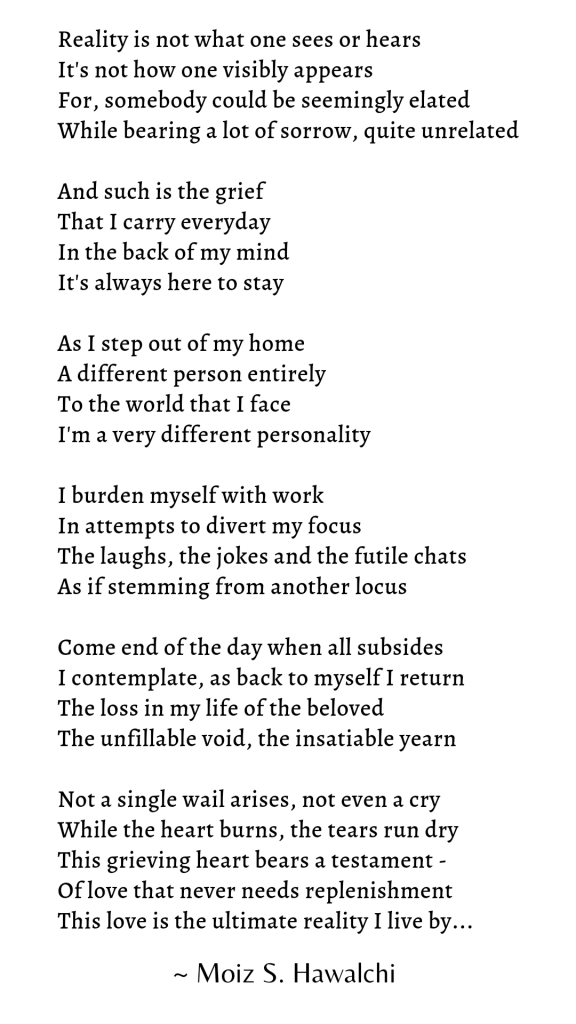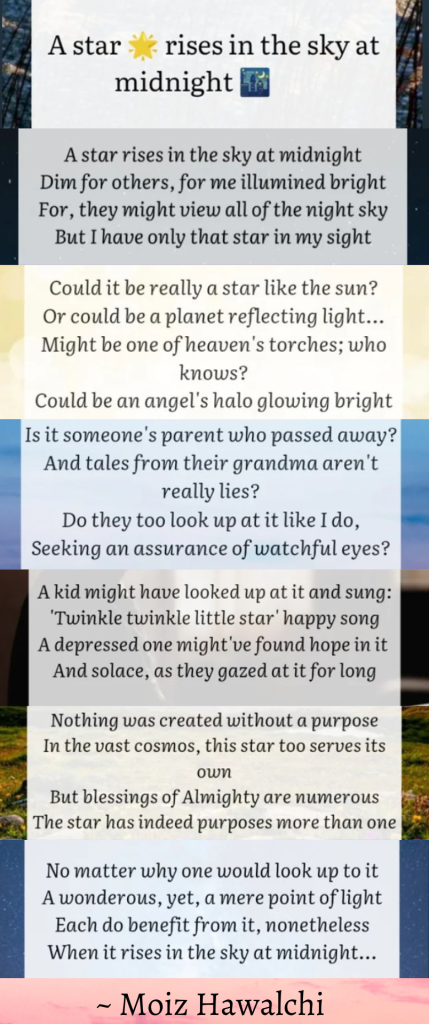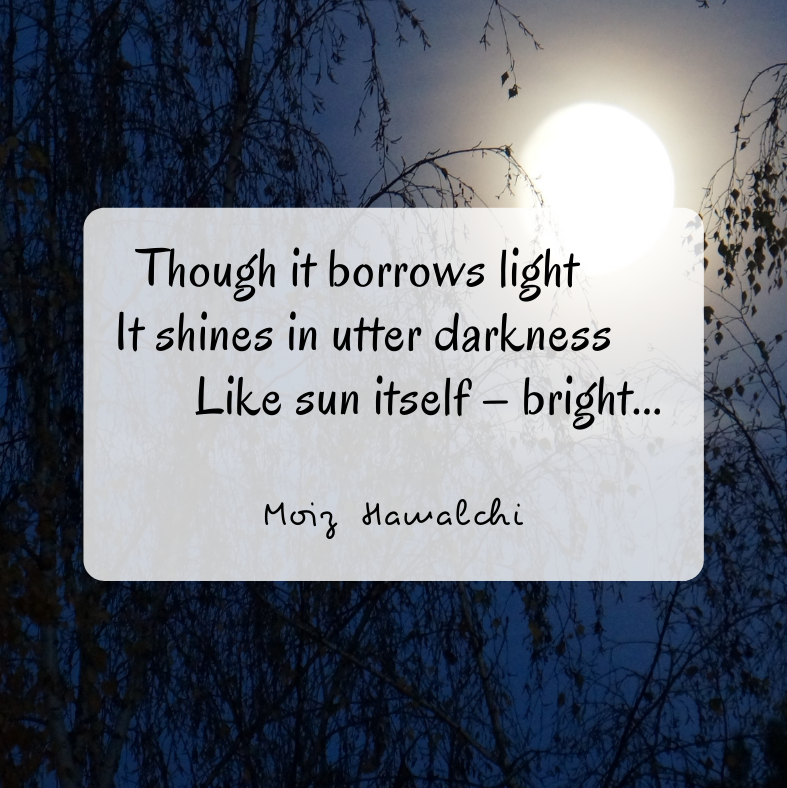
Buried Grief







Inspired by ’96 (a 2018 Tamil movie).






This is for the first time I’ve tried writing a haiku poem(s)!
Although it’s a genre focusing on limited verses with intensified, direct expression; it’s also one of the hardest since it includes expressing yourself in concise form.
Haiku (俳句) is a type of short form poetry originally from Japan. It consists of three phrases written in a syllable pattern of 5, 7, 5. It has a cutting-word at end of each line and a word with a season’s reference. In English and in other languages, haiku have their own styles but they do incorporate aspects of the traditional haiku form.
A haiku poem depicts a clear expression, but my style definitely tends to lean towards writing with hidden meaning and symbolism.
Do comment if you liked them or if any specific one catches your eye!
#1. Rainbow

#2. Inked Paper

#3. Spring

#4. Haiku

#5. Moon

***
Compose your own haiku poetry and post them in comments!

In this poetry, it is attempted to depict a parent’s terrible loss of his young child.
The poem begins with woes & despair befallen the poet. It sets the theme of a huge tragedy that might’ve struck him. Next, it is stated how the laughter and cries will be missed. The silence of a room is to symbolise the loss of a person.
In third stanza, the poet cries of how he’d never get to see his child grow. But also hopes to meet him/her again and he’d get to fulfill his wishes after his days have passed. The fourth stanza portrays the pain being felt by the poet while bidding final goodbye to his child. He says that his child’s body is like all his dreams he had for the child – all shattered and lifeless.
In the last two stanzas, the poet concludes that the pain of losing one’s child never leaves a parent. No loss or grief in this world could be greater than losing one’s own child.
***
Many a poetic devices and figures of speech are used in this poem. For e.g. :
Can you find more of such devices?
Also, do comment below on what you think of the poem…